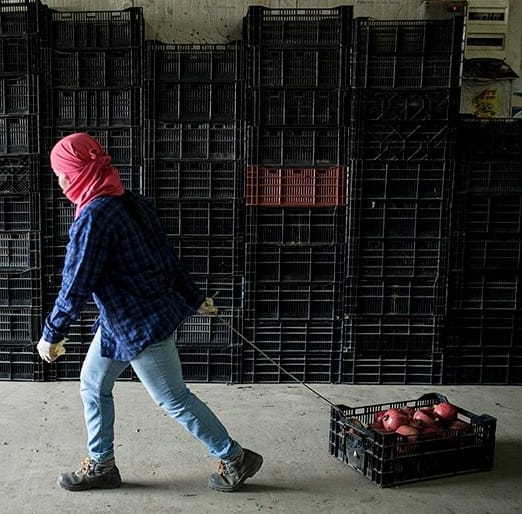Since the 1990s, Israel’s agriculture sector has relied almost entirely on migrant workers, as a solution to it’s chronic shortage of working hands. In the summer of 2023, the Israeli government decided to increase the quota from 30,000 to 40,000 migrant workers in the agricultural sector, in addition to Palestinian workers, whose number varies according to the season and the security situation.
To our “Working Safely in Agriculture” project
Read More
In 2012, Israel signed a bilateral agreement with the Thai government, deciding that agricultural workers could come to Israel only under bilateral agreements.
As to 2023, Israel employs around 30,000 Thai citizens to work in agriculture as well as about 3,000 students from developing countries who come for one-year work/study programs in agriculture.
During the October 7th. massacre, many foreign agricultural workers, including students, were murdered, wounded or kidnapped by Hamas. As a result, in October 2023, with the encouragement of the Thai government, some 9,000 frightened workers left Israel while Palestinian workers with permits were prevented from entering Israel. In November 2023, due to the shortage of workers in the sector, Israel signed a new bilateral agriculture agreement with the Sri Lanka government, and also approved the arrival of up to 5,000 migrant workers from other countries, outside the scope of bilateral agreements. In December 2023, these workers began arriving to Israel in small numbers, along with thousands of workers from Thailand who have returned to work in Israel even though the war is still ongoing.
Agriculture remains one of the most abusive labor environments in Israel.
Migrants and agriculture students workers in Israel often do not receive the basic rights in terms of Israeli labor law, including minimum wage, overtime payments, rest days, holidays, paid leave, accurate pay slips and other social benefits. In addition, they often live in deplorable accommodations, and do not enjoy most of the safety rights provided by Israeli legislation.
Kav LaOved agriculture department manages an active Facebook page in Thai followed by more than 24,000 workers where updates and rights’ descriptions are regularly highlighted.
We also produce informational brochures and leaflets on workers’ rights, in Thai, Hebrew, and English.
Kav LaOved provide individual workers with calculations regarding the wages and workers rights. Thanks to our experience, we can evaluate if their right to suitable accommodations, work safety, access to health services, assistance by their employment agency and more are being kept and respected.


